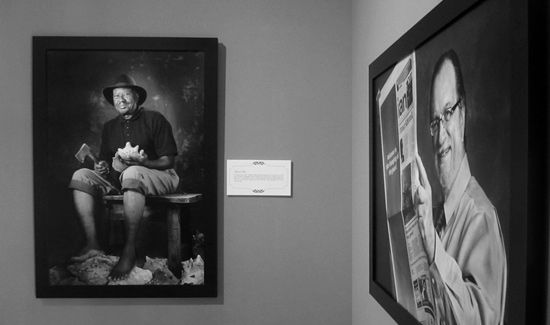Stirred by last year’s referendum and a new gaming bill, the debate on the ethics of gambling continues unabated. With every major expansion of gambling in the country there has been political fallout, including the exposure of divisions within the UBP and the PLP on the morality of gambling.
The political contours of the current debate include a number of curious twists and turns. The referendum debacle is relatively fresh in the minds of Bahamians.
Many remain unconvinced of the Prime Minister’s claim of neutrality in the referendum debate which proved to be a political fiasco for his administration. The numbers’ bosses must have been angry with the government’s ineptness and the result.
The legalization of the numbers business is not a constitutional question. Legalization simply required action by parliament. Instead the government sought cover through a referendum process that proved costly and inept.
An overwhelming majority of those who voted in the referendum said no to the legalization of the numbers business. A majority of voters did not vote, signalling displeasure with various aspects of the debate.
But the “no” result was far from the end of the debate. Faster than a roll of the dice, legislation advanced on the expansion of casino gambling.
The bill to accommodate the resort casinos doing electronic gambling has also raised the issue of Bahamians being able to gamble in resort casinos. The Prime Minister noted that he will take into account what MPs have to say about this and he has indicated that he will act accordingly.
In a curious and steady procession a number of MPs in the governing party have raised the issue of whether ordinarily resident Bahamians are being discriminated against in not being allowed to gamble in casinos.
Will the government use the discrimination argument as cover to allow such Bahamians to gamble in the casinos? Is the government waiting for enough MPs to get onboard the discrimination bandwagon so that it can move on allowing ordinarily resident Bahamians to gamble in the casinos?
UNUSUALLY QUIET
As an aside, why have religious leaders been unusually quiet during the debate on the gaming bill, especially in light of the nature of the bill in terms of dramatically expanding internet-based gambling through The Bahamas?
Recall also the Tourism Minister’s desire to make the country a gambling Mecca. Will we become like other destinations where slots machines are ubiquitous, beyond the confines of the casino, in locations like airports?
All of this expansion of gambling would please the casino operators who would have not just tourists and online gamblers but thousands of Bahamians dumping their money into their slot machines and at their black jack tables. Repeat business by those ordinarily resident in The Bahamas would be quite lucrative for casino operators.
As a historical reminder, casinos were meant to be an incentive to encourage large-scale resort development and were originally designed to be an amenity for tourists who spent only a few days in the Bahamas and not for residents who might patronize them year-round. A Bahamian who was resident abroad, for example, could gamble in the casino on a visit home.
If Bahamians ordinarily resident in The Bahamas are allowed to gamble, how could a government refuse to allow Bahamians the right to open up casinos or legal numbers enterprises? In a great wheel of fortune windfall, enter the numbers men.
The language we employ in a debate requires scrutiny. The numbers business is not an “industry” per se; as long as it remains illegal it’s a racket, no matter how the Member of Parliament for Tall Pines views this illegal enterprise.
The argument of discrimination also bears scrutiny. There are some who make a discrimination argument quite sincerely. Yet there are others who may be using the argument as a convenient cover to advance their economic fortunes.
There are three broad philosophical clusters constituting the body of opinion on gambling, ranging from that of the prohibitionist viewpoint to that of the libertarian. Both the prohibitionist and libertarian viewpoints were described in some detail in last week’s column.
COMMUNITARIAN ARGUMENT
The third cluster represents a more moderate and intermediate position, prioritizing a communitarian argument of the social effects of certain types of gambling over the question of individual choice.
An earlier compromise on the expansion of casino gambling allowed tourists the opportunity to gamble while restricting it to those ordinarily resident in The Bahamas. A number of religious leaders, generally opposed to gambling, quietly accepted such a compromise.
Hothouse gambling in a casino environment with often free drinks and a carnival atmosphere with flashing lights, scores of fellow gamblers, inducements to gamble and a panoply of games of chance, is experientially quite different from buying numbers.
It is the view of this columnist that easy access to this sort of gambling by ordinarily resident Bahamians would have a deleterious effect on the Bahamian society, socially, economically, in terms of home life and a potential increase in various types of crime.
Further, an ordinarily resident Bahamian gambling while temporarily visiting overseas is quite different from near 24-hour access to a casino at our two major urban centers of New Providence and Grand Bahama as well as any casino currently open or to be opened at a Family Island.
Might we see the day, not that far into the future, where every family island has a casino? Is this the sort of gambling Mecca the government has in mind?
Some would say that this argument of discrimination against Bahamians and is an example of state paternalism. It depends on the kind of state paternalism one finds acceptable.
From seat gun laws to designated seasons for fishing various marine life to what age one may run for the House of Assembly, there is what may be described as a minimum or soft paternalism in the interest of various ethical norms and a broader social good.
There is an ethical argument about discrimination. But in the field of ethics other ethical arguments often weigh more in deciding the best over a particular ethical good. We are continuously weighing ethical choices, and what on balance may be a wiser course of action.
Instead of discrimination, restricting ordinarily resident Bahamians from casino gambling may be viewed as a “reasonable exception”. The state does not allow driving and drinking until a certain age. Is this discriminatory or a reasonable exception?
REASONABLE EXCEPTION
The restriction on Bahamians owning handguns is viewed as discriminatory by some. For many others, including this writer, it is a reasonable exception in order to avoid the development a broader gun culture which would have negative social consequences. For many, it is also reasonable to restrict access to various illegal drugs.
This column supported a national lottery, the proceeds of which would be returned to the Bahamian people for various social and development initiatives. In terms of social ethics this appears to be a wiser ethical choice than legalizing a numbers business with windfall profits flowing into the coffers of many in this now illegal enterprise.
In deciding how far we want to expand online-based gambling through The Bahamas and whether ordinarily resident Bahamians should be allowed to gamble, we are essentially debating the kind of country and society we wish to be and to become.
On the question of gambling, our greater ethical concern might be that of a communitarian ethic of the common good as a priority over arguments of individual choice.
We should not be in a rush to make unwise choices based on arguments about discrimination, choices that will surely come to harm us in the years to come.
The love of money, by gamblers in a casino and those running gambling concerns, among other vested interests, should not determine the kind of country we wish to secure for young Bahamians and future generations.
This is the greater ethical question we should be contemplating and upon which we should make our decisions as parents, citizens and legislators.
By: Simon



